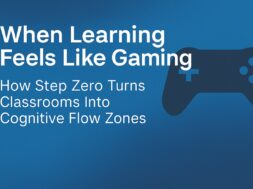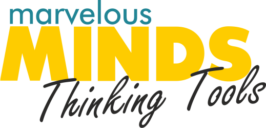Are you tired of the traditional maths teaching methods that seem to leave students confused and frustrated? It's time to rethink the way we approach math education. By rethinking maths education, the Thinking Tools approach offers a revolutionary alternative that focuses on building deep understanding, critical thinking skills, and a love for the subject.
The Limitations of Traditional Math Teaching
Traditional math education often relies on rote memorization and following prescribed steps. This approach can lead to a superficial understanding of concepts, making it difficult for students to apply their knowledge to real-world problems.
- Knowledge Transfer Myth: The idea that knowledge can be directly transferred from one brain to another is flawed.
- Recipe-Based Learning: Teaching math as a series of recipes or algorithms can be counterproductive, as it doesn't foster true understanding.
- Lack of Internalization: Students who rely on methods and tricks may struggle to internalize mathematical concepts and apply them independently.
The Thinking Tools Approach
The Thinking Tools approach takes a different path, focusing on building a deep understanding of mathematical concepts and empowering students to become problem-solvers.
- Relationships and Patterns: Math is about understanding relationships and patterns, not just following procedures.
- The Embroidery Analogy: Thinking Tools views math as an embroidery, with a neat front end and a backend. The backend is where the real math happens, and it's essential to understand this to truly grasp mathematical concepts.
- The Pilot Chute Concept: This strategy helps students understand the problem, identify the operations involved, and choose the best approach to solve it.
- Building Self-Confidence: The Thinking Tools approach focuses on developing self-confidence and mathematical skills simultaneously.
- Learning, Not Teaching: Math cannot be taught; it must be learned. Thinking Tools teachers create an environment where students can actively engage with mathematical concepts and discover their own understanding.
What We Don't Do
The Thinking Tools approach avoids many common pitfalls of traditional math teaching, such as:
- Relying on examples and algorithms
- Encouraging rote memorization
- Using abstract teaching methods
- Teaching math in isolation
What We Do
Instead, the Thinking Tools approach focuses on:
- Building relationships and self-esteem
- Teaching mathematical reasoning
- Fostering problem-solving skills
- Developing critical thinking abilities
- Creating a supportive and engaging learning environment
Benefits of the Thinking Tools Approach
By adopting the Thinking Tools approach, students can develop essential skills for the 21st century, including:
- Creativity
- Emotional intelligence
- Analytical thinking
- Active learning
- Judgment and decision-making
- Interpersonal communication
- Leadership
This is how a group of grade 10 learners analysed the tapestry back-and frontend of a factorization sum

This is how a group of grade 10 learners analysed the tapestry backend of a simplification sum

The Thinking Tools approach offers a refreshing alternative to traditional math education, empowering students to become confident, critical thinkers. By focusing on understanding, problem-solving, and building a love for math, we can equip students with the skills they need to succeed in the future.
Ready to revolutionize your child's math education? Register for free on the Marvelous Minds Platform and gain immediate access to free math classes using the Thinking Tools methodology. Give your child the gift of a deeper understanding of math and a lifelong love for learning.





